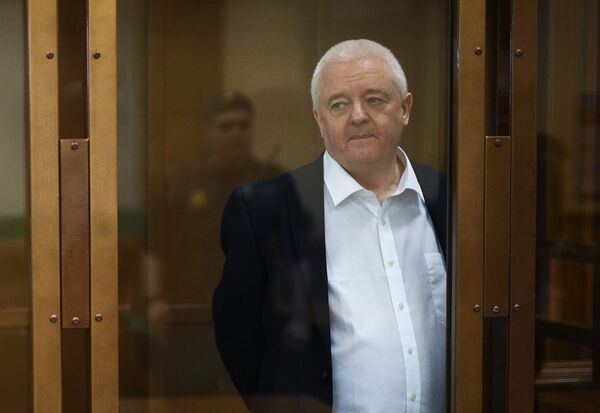"A friend working in intelligence asked me about a service: when on a trip to Russia, to send a letter with money by mail, I didn't think it was illegal. Nobody said it was top secret information. Of course, he said it was confidential, but the conversation was not about secret data... The person who asked me about it, he knows me well, knows my work, he was born here, and I was not afraid of anything when he asked me for a favour", Berg told RIA Novosti in an exclusive interview.
He said he had trusted the man as a friend, and did not think the man would drag him into something dangerous.
"But now I understand that I shouldn't have [trusted the man]. It's probably naive, but who isn't naive then? The one who doesn't see real problems with intelligence now? And I don't think that Frode Berg should be a problem", Berg said.
According to him, after the arrest, he had time to think about what had happened.
"At first I was very angry at my colleagues in Norway, those who worked in the security services, who, it turns out, set me up. I began to think how it happened that they arrested me because I'm known in Russia, the local FSB [Federal Security Service] officers, something is really wrong", he said. "At first, there were people in Kirkenes who were critical of me, saying why had I done this [agreed to transport the envelope]. But they did not know the entire story of what really happened, they did not know the details, and now there is less of this", the former border inspector told RIA.

Berg said many people in Norway had been afraid he had passed some information to Russian security services but added that it was not true. He also advised visitors not to be afraid to come to Russia.
The former Norwegian border inspector said that after he returned to his country, the leadership of Norway's intelligence service apologised to him. He also said Norwegian intelligence agencies should stop using residents of the regions bordering on Russia, including his native Kirkenes, for their own purposes.
Berg said in the interview he was writing a book to describe the story of his arrest and would publish it in October.
The retired Norwegian border inspector was detained in Moscow in December 2017 as he was caught receiving documents that contained classified information concerning the Russian navy. Last April, a Russian court sentenced him to 14 years in prison on espionage charges.
He has denied the charges, while his lawyer has said that he might have been used as a carrier for the classified documents by Norwegian intelligence officers without being aware of it. In November 2019, Berg was freed from a jail in Russia and handed over to the Norwegian embassy in Vilnius in a spy swap that also involved two Lithuanians and two Russians.


